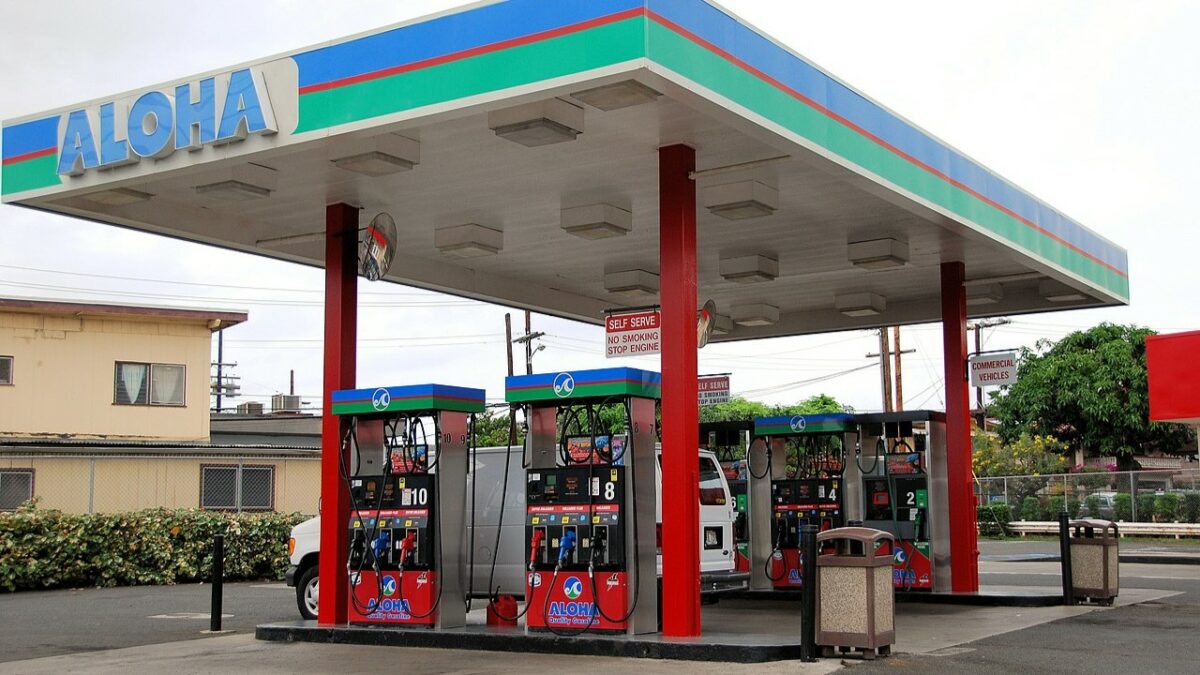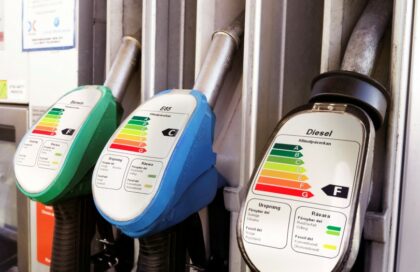Last year, a bill requiring climate change and health information on gas pumps in Hawaii was passed by the State Senate but was later blocked by the House Committee on Energy & Environmental Protection. This year, the bill got stuck in the same committee. Hawaii may still become a pioneer if the bill is passed into law next year.
There are at least 206 countries or jurisdictions that demand health information labels on cigarette packs. However, the city of Cambridge, MA, is the only jurisdiction that demands climate and health warnings on gas pumps. Sweden is the only country that requires eco-labels on fuel dispensers and some charging stations, displaying climate impact, renewable share, and raw materials.
Gas pump warning labels in Hawaii like those in Cambridge have been promoted by the Hawaii-based non-profit Think Beyond the Pump for several years. Its chair, James Brooks, together with Mike Gill, a former Regional Director of Public Health for the UK, recently argued in Honolulu Civil Beat why such labels are needed.
Last year, bills SB506 and HB1277 were introduced in the Hawaii Legislature, requiring labels of this kind on each self-service gas pump. If passed into law, Hawaii would become the first US state with mandatory climate and health warning labels on gas pumps.
Senator Mike Gabbard, one of the sponsors of SB506, commented:
“Placing warning labels on gas pumps across Hawaii sends a strong message and would be a major step toward increasing awareness nationally – even globally. What better way to help educate people on this looming threat, than by setting our beautiful island paradise as an example?”
Gas pump warning labels align with the climate emergency declared in Hawaii, as well as with the lawsuit by Honolulu accusing fossil fuel companies of deceiving the public about climate change. With Hawaii suffering from devastating wildfires in Lahaina, Maui last year, more devastating climate-related events are to be expected in the future.
Renowned experts in climate, public health and communication, including lead authors for the IPCC, testified in support of SB506. In March 2023, the bill was passed by the Senate with overwhelming majority. However, the bill was later deferred by Representative Nicole Lowen, chair of the House Committee on Energy & Environmental Protection (EEP).
This year, senate sponsors urged the EEP committee to schedule a hearing for SB506, but the committee chair chose not to, according to our sources. This means that the bill will not be passed by the House in 2024 and will have to be reintroduced in 2025.
The EEP committee has not explained publicly why it did not schedule a hearing for the bill. There have been concerns about implementation, but the Hawaii Public Utilities Commission has been willing to participate in pilots and working groups on enforcement of the bill.
Former CA State Senator Fran Pavley, a legendary Californian environmental legislator who authored the Pavley law that was instrumental for the worldwide surge of electric cars, recently wrote an open letter to Representative Lowen:
“The objections to the label bill to educate consumers about the impacts of fossil fuels to our health and the planet, reminds me of the long fight with tobacco companies over cigarettes.”
”Implementing a pilot program on gas pumps would help inform your residents and visitors of the dangers of fossil fuels and also encourage them to consider cleaner energy sources and vehicles. Other states may want to follow your lead. I look forward to monitoring your progress.”
Fossil fuel interests have indeed been working against environment and health labels, just like tobacco companies. Hawaii Energy Marketers Association (HEMA) testified against SB506. The Western States Petroleum Association (WSPA) opposed previous initiatives in California. Drivkraft Sverige, the trade association for the large Swedish fuel companies, counteracted the Swedish eco-labels. They are being evaluated this spring, and the trade association is campaigning to get rid of them.
In the light of this, the following statement by Former Vice Mayor Jan Devereux, the original political sponsor of the climate and health warning labels in Cambridge, MA, should be taken to heart:
“Legislation like this needs persistent advocacy and a sponsoring coalition of lawmakers who are committed to getting the bill passed.”
Legislators should know that public support for labels is significant. Studies by social psychologist Stylianos Syropoulos, initiated by Think Beyond the Pump, suggest that at least 70 percent of the US population support installing gas pump warning labels like those in Cambridge, MA. Among republicans the level of support is around 55 percent, whereas it is about 85 percent among democrats. The perceived effectiveness of the labels to increase awareness about the negative consequences of burning gasoline is around 40–55 on the scale 0–100.
– Sustainability labels on fuel dispensers should be seen as one element in a wide array of measures to curb the burning of fossil fuels, says Per Östborn, campaign manager at Green Mobilists Sweden. Such moves may reinforce each other. We have regulations and CO2-taxes, but soft measures like warnings and consumer information at points of sale remain an untapped resource.
Image: Gas station in Honolulu, Hawaii. Source: Wikimedia


